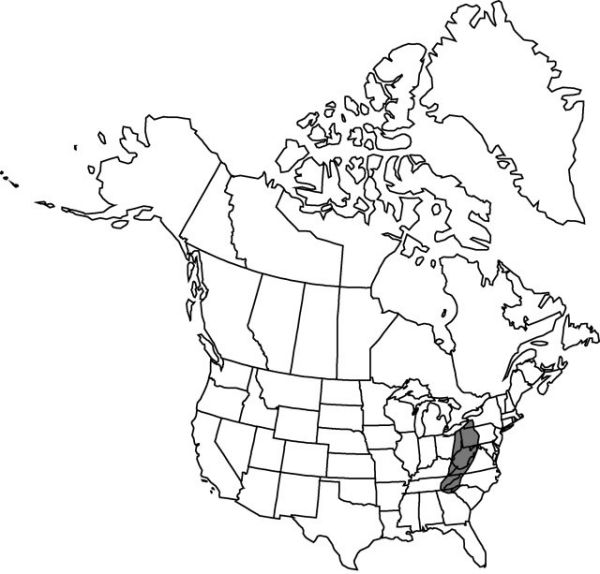Clintonia umbellulata
Mem. Torrey Bot. Club 5: 114. 1894.
Plants 2.7–6 dm; rhizomes short, thick. Cauline leaves 3–4; blade dark green, oblong to obovate-elliptic, 18–30 × 4.5–8 cm. Inflorescences in terminal clusters, 10–25 (–30) -flowered; bract 1, foliaceous. Flowers: tepals white to greenish white, often spotted purplish brown or green distally, ovoid-obovate, 5.5–8 × 2.7–4 mm; filaments 5.5–7 mm; anthers short-oblong, 3.5–5.5 mm. Berries black, globose to ellipsoid, 2–4-seeded, 6–8 mm. Seeds 3–4 mm. 2n = 28.
Phenology: Flowering early May–late Jun.
Habitat: Rich cove hardwood forests
Elevation: 200–1000 m
Distribution

Ga., Ky., Md., N.Y., N.C., Ohio, Pa., S.C., Tenn., Va., W.Va.
Discussion
Clintonia umbellulata and C. borealis are allopatric in the southern Appalachians (P. P. Gunther 1972). A putative hybrid between the two, C. allegheniensis Harned (J. E. Harned 1931) is not recognized here and is regarded as a mere fruit-color variant of C. umbellulata (F. H. Utech 1973). Isozyme evidence supports this conclusion (M. T. Blain 1997).
Selected References
None.
Lower Taxa
"thick" is not a number."thicker" is not a number.